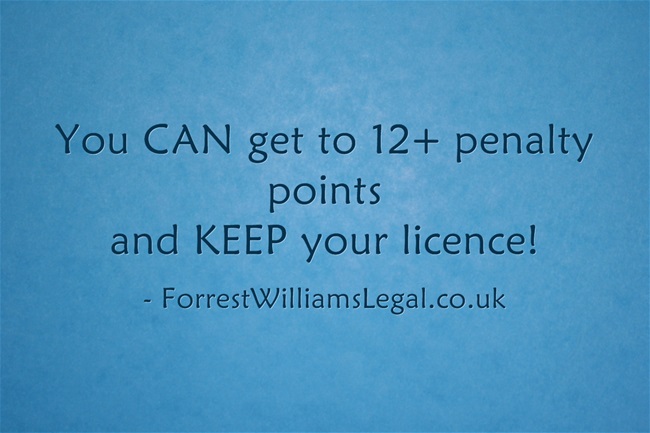
Jess Sadler, paralegal at Forrest Williams solicitors
Getting a Speeding Case Withdrawn: A Case Study
Emma came to us facing two speeding charges and two failing to notify driver details charges, she had 6 points on her licence at the time of the offence, so if convicted of these charges she would fall to be disqualified under the totting up procedure.
Emma did not have strong grounds for an Exceptional Hardship application, which can allow people to avoid the 6 month disqualification imposed when drivers reach or exceed 12 penalty points on their licence. We advised her not to proceed on this basis.
Emma works as a Nurse in a Children’s hospital in London; she does 13 hour shifts 5 days a week and then volunteers at her local church on her days off. Emma drives the Vicar’s wife and daughter to religious events weekly, as they have no other mode of transport.
Emma completely accepted responsibility for the Speeding Offences, however she had recently moved house and so had not received the Notices of Intended Prosecution, hence the two further charges of Failing to Notify Driver Details.
Importantly, Emma was still in frequent contact with her former landlady, Rachel, as they actually attend the same church. Emma had a system in place whereby Rachel would pass on any post that had been delivered to Emma’s previous address. Rachel was a trustworthy and reliable lady, who happily supported Emma’s case and wrote her a very strong and supporting Character Reference.
Emma came to us in desperation. The Vicar’s wife and daughter rely on her for transport and this was her concern. She was in no way upset about the inconvenience it would cause her for having to walk to and from work.
We advised Emma that we would aim to get the Failing to Notify Driver Details Charges dropped, and hopefully get the lower of the two Speeding Offences dealt with by way of a Speed Awareness Course. She knew that she faced a very real risk of being disqualified from driving for 6 months.
We prepared Emma’s case to our usual high standard, and arranged for one of our specialist motoring law barristers to represent her.
Emma attended Halifax Magistrates Court expecting to face a disqualification.
Emma’s barrister phoned us at 11am with the excellent news.
All four charges had been withdrawn!
The Prosecutor on the day had a child who had been a patient on Emma’s ward. He had completely sympathised with her and wanted to give her something back.
After reading Rachel’s character reference he accepted that Emma had not received the original notices of intended prosecution and so withdrew the Failing to Notify Driver Details charges, and both Speeding charges!
Emma received an amazingly unexpected result!
If you have been charged with a motoring offence and would like expert assistance, give our dedicated team a call now on 01623 397200.



